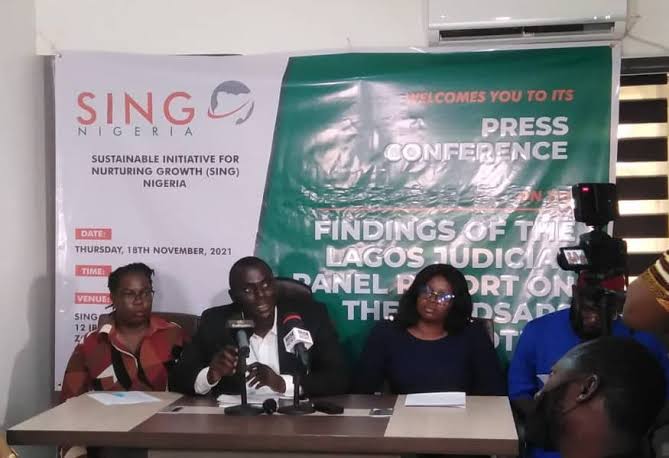A Non-Governmental Organization (NGO), Sustainable Initiative for Nurturing Growth (SING), in Nigeria, has stated that vote buying by major political parties has the potential to destroy the country’s democracy if not addressed.According to a statement issued by the organization on Saturday, Mr Victor Agi, Communications Manager, SING Nigeria, said this at an event hosted by the Independent National Electoral Commission (INEC) in Abuja to debrief accredited observers on the recently concluded Anambra governorship election.
According to Agi, stakeholders must step up their efforts to put an end to money politics, a tactic used by some politicians to subvert the democratic process.
“The normalization of vote buying is concerning and should be addressed as soon as possible.”
“During the election, there was open endorsement of vote buying and selling; there was no resistance from the relevant authorities, including INEC and security officers who witnessed these incidents.”
“As an organization, we are deeply committed to addressing the cost of politics and preventing money from determining the outcome of our elections.”
“Politicians will continue to weaponize poverty to win elections unless stakeholders take decisive action to end money politics,” Agi predicted.
The SING Nigeria Communication Manager also expressed concern about the ongoing low voter turnout in relation to the cost of elections.
“We are concerned that INEC made preparations for over 2.4 million voters in the recently concluded elections, for example, and only used about 10.4 percent of the election materials; what happens to the ballot papers that were not used?” he said.
He also drew attention to indications in the proposed electoral bill now before the president for his signature that the spending cap for political parties during elections has been raised.
Agi stated that including more spending in the electoral bill would result in more instances of vote buying and selling in future elections.
Prof. Kunle Ajayi, INEC Commissioner/Chair, Election & Party Monitoring Committee (EPMC), stated earlier in the session that the debriefing session was expected to deepen understanding of what is expected of accredited observers.
Civil Society Organizations (CSOs) were unanimous in their various reports about issues such as late arrival of election materials at polling stations (poor logistics arrangement), failures of the Bimodal Voter Accreditation Systems (BVAS), security management, and poor coordination between INEC and observers.
In order to address the logistics challenge, the session recommended that INEC review and strengthen its Memorandum of Understanding (MOU) with the National Union of Road Transport Workers (NURTW), and that INEC train staff for effective deployment of the BVAS in future elections.
The debriefing session allowed stakeholders, particularly CSOs, to share their experiences and discuss field observation findings.
It also gave them the opportunity to discuss with INEC how election observation engagement can help to sustain and enhance the nation’s democracy.
It was also intended to clarify grey areas for future review of the guidelines for observation, as well as to provide a shared understanding of the path forward.
